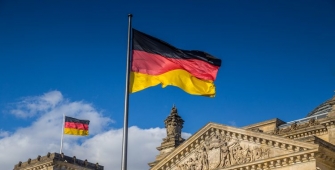Trading Conditions
Products
Tools


German inflation slowed in January, propelled by a weaker rise in energy prices, data showed, lending support to the European Central Bank's cautious approach to reducing its monetary stimulus only gradually.
Consumer price inflation slowed to 1.4 percent on the year in January, according to preliminary data from the Federal Statistics Office.
The rate follows a month-on-month drop of one percent from December 2017, on an EU-harmonised basis, Destatis added, and implies that the rising euro is damping down prices.
ECB chief Mario Draghi recently pushed back on rate hike speculations, arguing there was almost no chance of a move this year, even as some investors were betting on a hike as early as December.
For the month, consumer prices dropped 1.0 percent, below the 0.7 percent decline expected by analysts.
Lower energy inflation made the largest contribution to the weaker headline figure while food inflation picked up, the office said.
According to Carsten Brzeski, chief economist for Germany at ING, the figures “should ease the recent hysteria in markets about a possible inflation surge and changes to the ECB's monetary policy stance”.
The statistics office did not provide a preliminary reading for German core inflation.
However, Commerzbank analyst Marco Wagner said that core inflation probably remained unchanged in January and that he expected this key measure to rise in the coming months.
The German government expects national consumer price inflation to slow to 1.7 percent this year from 1.8 percent in 2017, despite raising its 2018 growth forecast to 2.4 percent from 1.9 percent previously, a government document showed.
 Stay
Stay 
